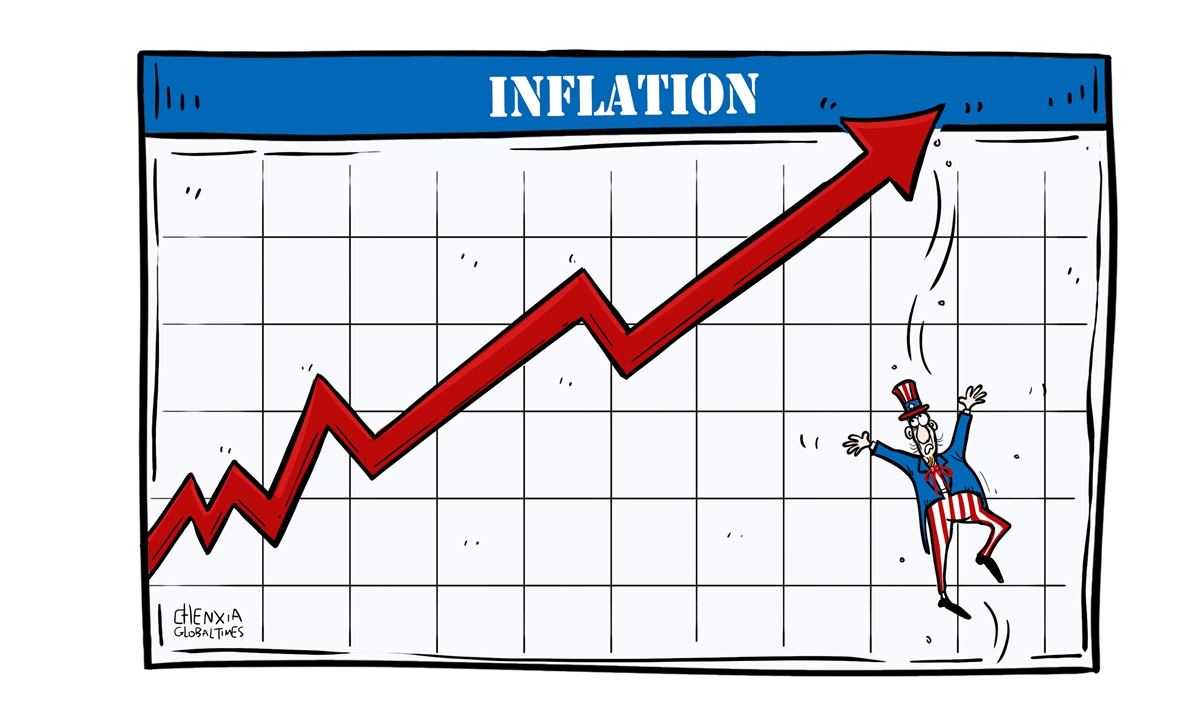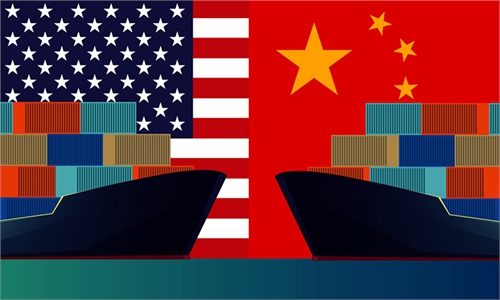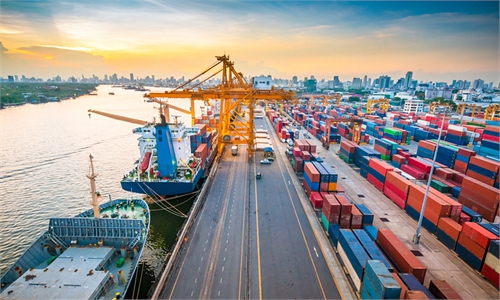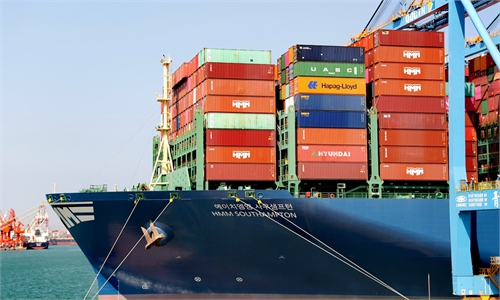
Illustration: Chen Xia/GT
Even as US tariffs on imports from China backfire by inflicting much pain on the US economy, President Joe Biden, after one year in office, still said on Wednesday he was not yet ready to lift the tariffs that his predecessor imposed on Chinese goods.
Biden said US Trade Representative Katherine Tai is "working on that right now" but "the answer is uncertain."
It is not uncommon to hear such vague rhetoric from the Biden administration about the US tariffs on Chinese goods. The fact that the Biden government is keeping the tariffs on Chinese goods levied by the Trump administration is a clear indication of their reluctance to give up on the tariff policy toward China, which is actually rooted in politics, not economics.
There is already more than enough evidence showing that US tariffs haven't brought any additional benefits to the American economy but instead have broadly harmed US businesses and consumers. Yet, politicians in Washington still consider tariffs as a point of leverage against China, disregarding the fact that resorting to tariffs on its own supply chains is poisoning America's economy.
The tariffs haven't really dealt a blow to China's foreign trade. American imports from China have continued to rise, reflecting that Chinese goods are irreplaceable in meeting the demands of average consumers there.
Trade between China and the US soared by 28.7 percent and amounted to $755.6 billion in 2021, with China's trade surplus with the US reaching a record $396.5 billion, according to data from Chinese customs. Politicians in Washington often called on the public to avoid buying products made in China, but the truth is that even those making those remarks would struggle to follow through on the rhetoric. When Senator Marsha Blackburn tweeted on Wednesday "Less made in China, more made in America," she used an iPhone, a product designed in the US but made in China.
When it comes to dealing with the shocks of tariffs, China clearly has the upper hand with its resilient supply chains. In comparison, in the US, tariffs raised the prices of imported goods, which in the end increased consumer prices, putting extra burden on US companies and low-income US households. It is no secret that inflationary pressure is unsustainable for the US economy if prices remain elevated.
But the irony is that even in the face of such clear facts, the Biden administration still wants to continue the tariffs and other anti-China policies of the Trump era.
They repeatedly blame China for failing to meet the targets under the phase one trade agreement between China and the US. But it is the US' lack of trade cooperation, as reflected by the sanctions on high-tech trade with Chinese companies, that runs counter to the spirit of the phase one deal.
It has become increasingly clear that those who insist on holding the trade policies with China hostage are the real threat to the US economy. With US inflation skyrocketing, it is the US, not China, facing the urgent need to remove the tariffs on imports. The consumer price index in the US surged 7 percent year-on-year in December, the seventh consecutive month in which inflation has topped 5 percent, the fastest pace in decades.
Over the recent years, calls for Biden to remove the tariffs have been growing within US business circles, and some 3,500 companies have even sued the US government over the punitive tariffs, according to media reports. Maybe that's still not enough. We hope US companies with businesses in China or with China as well as US consumers can continue to call for a change of the US' trade policy.



